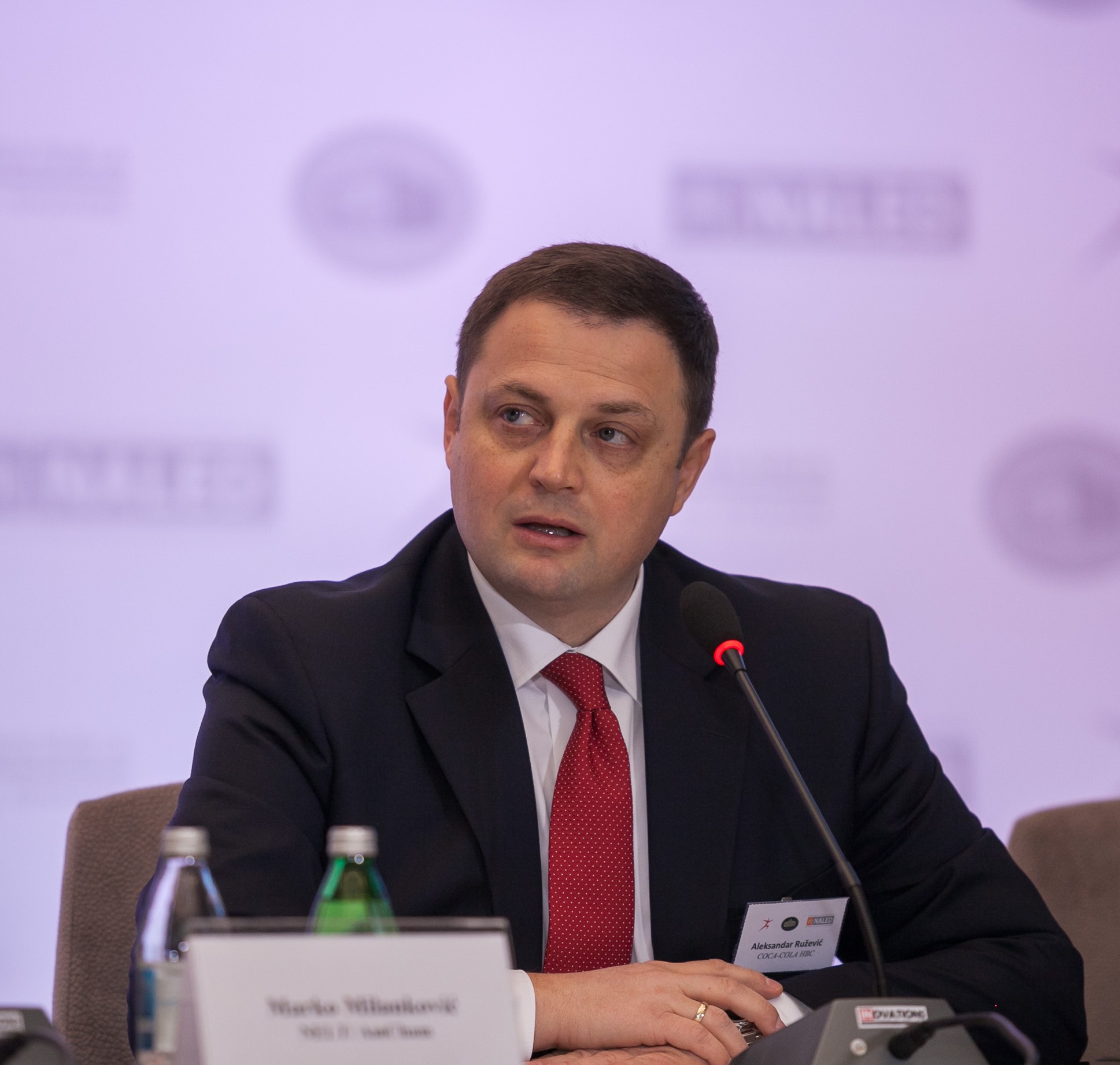As 2017/18 are proclaimed Years Of Combating the Grey Economy, the focus will be on encouraging legal businesses, better coordination of inspections and a more efficient judiciary
Following three working panel discussions, a joint press conference with the Government of Serbia , the American Chamber of Commerce (AmCham) and the National Alliance for Local Economic Development (NALED) emphasised that the Government of Serbia has made progress in 2016 in the creation of conditions for effective combating the grey economy. But there are additional requirements for substantive results in the establishment of a fair and competitive market: improvement of inspection control, better coordination of inspections, broader prosecution of crime in this area, as well as the creation of stimulating conditions for a legal business economy. 
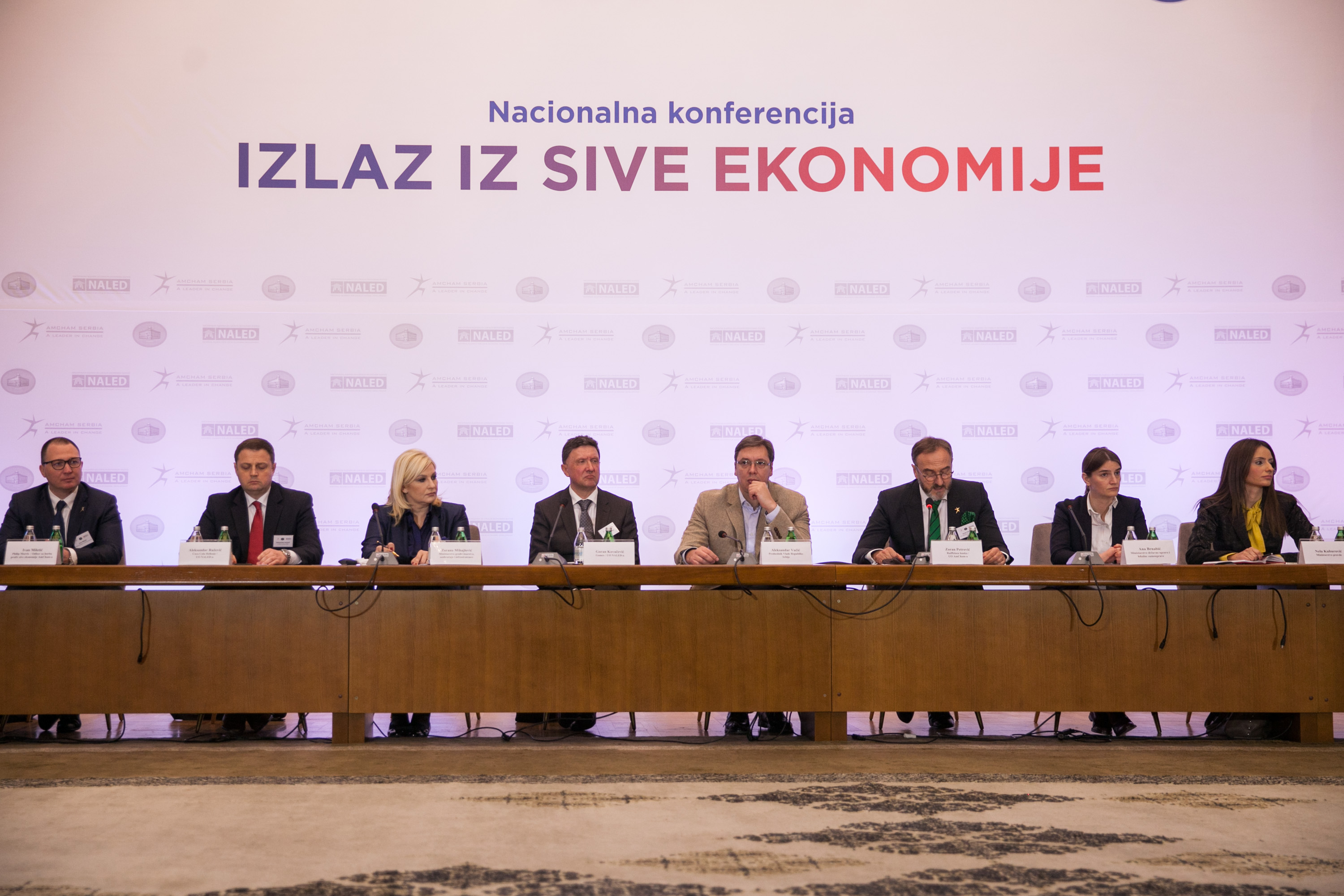
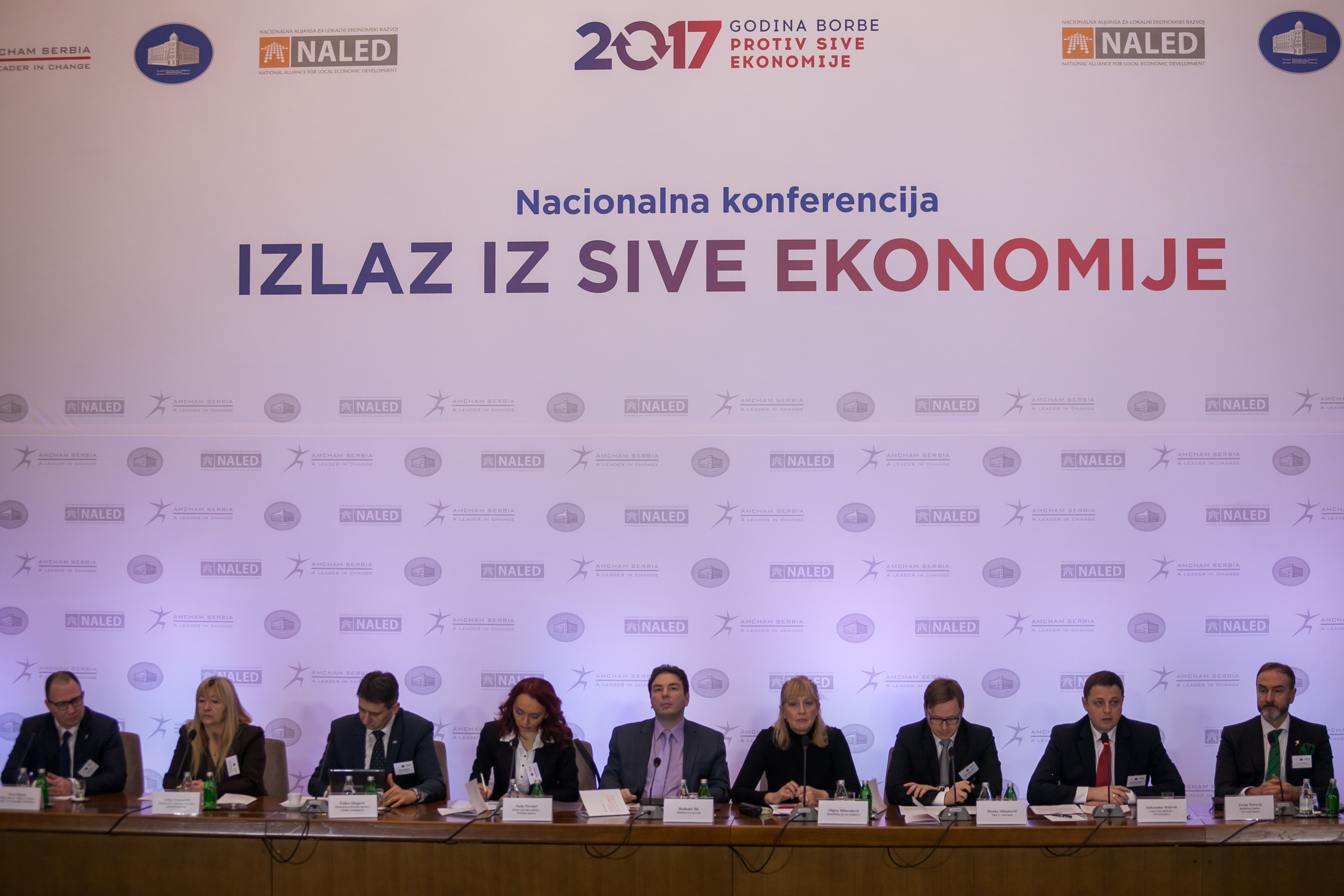
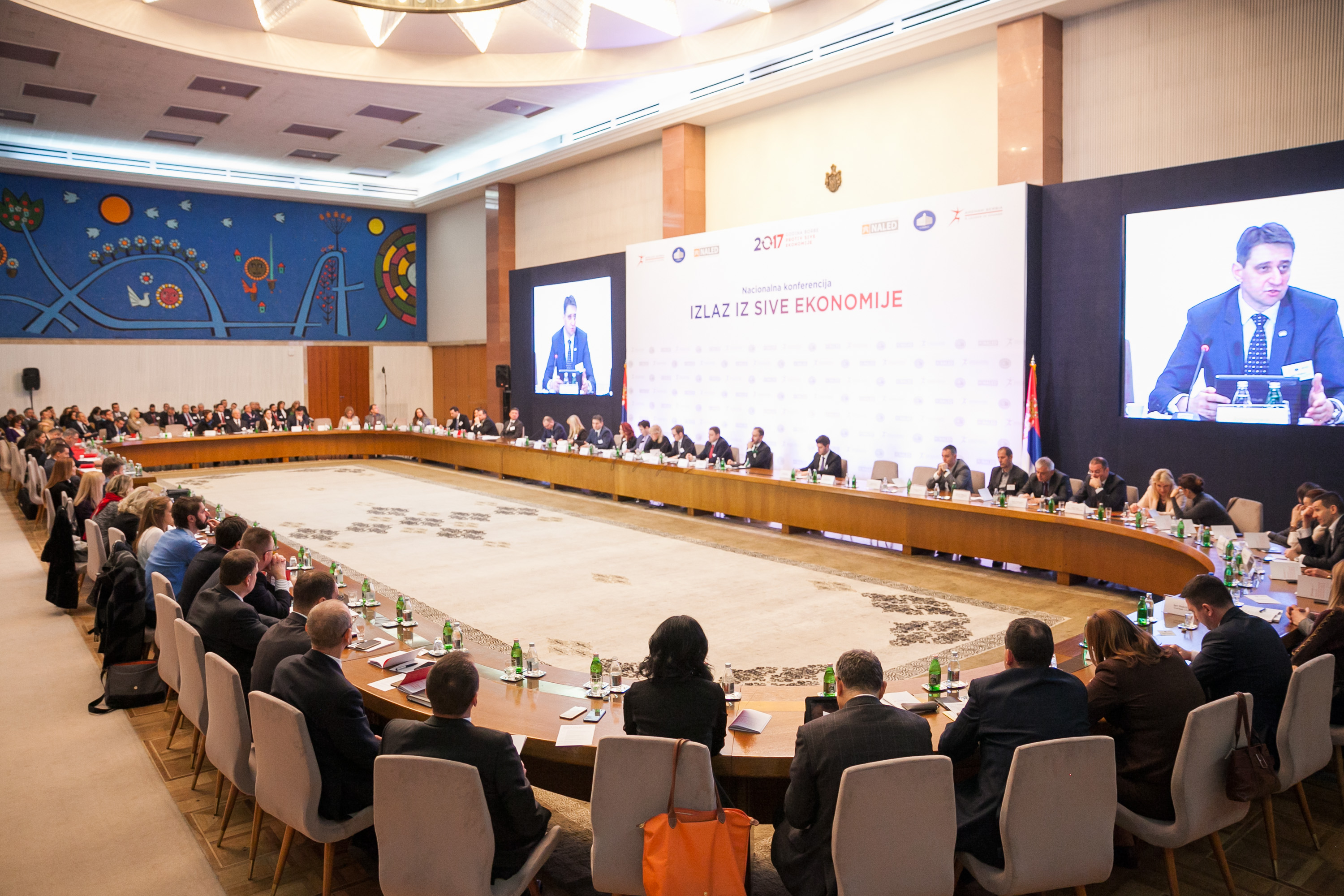
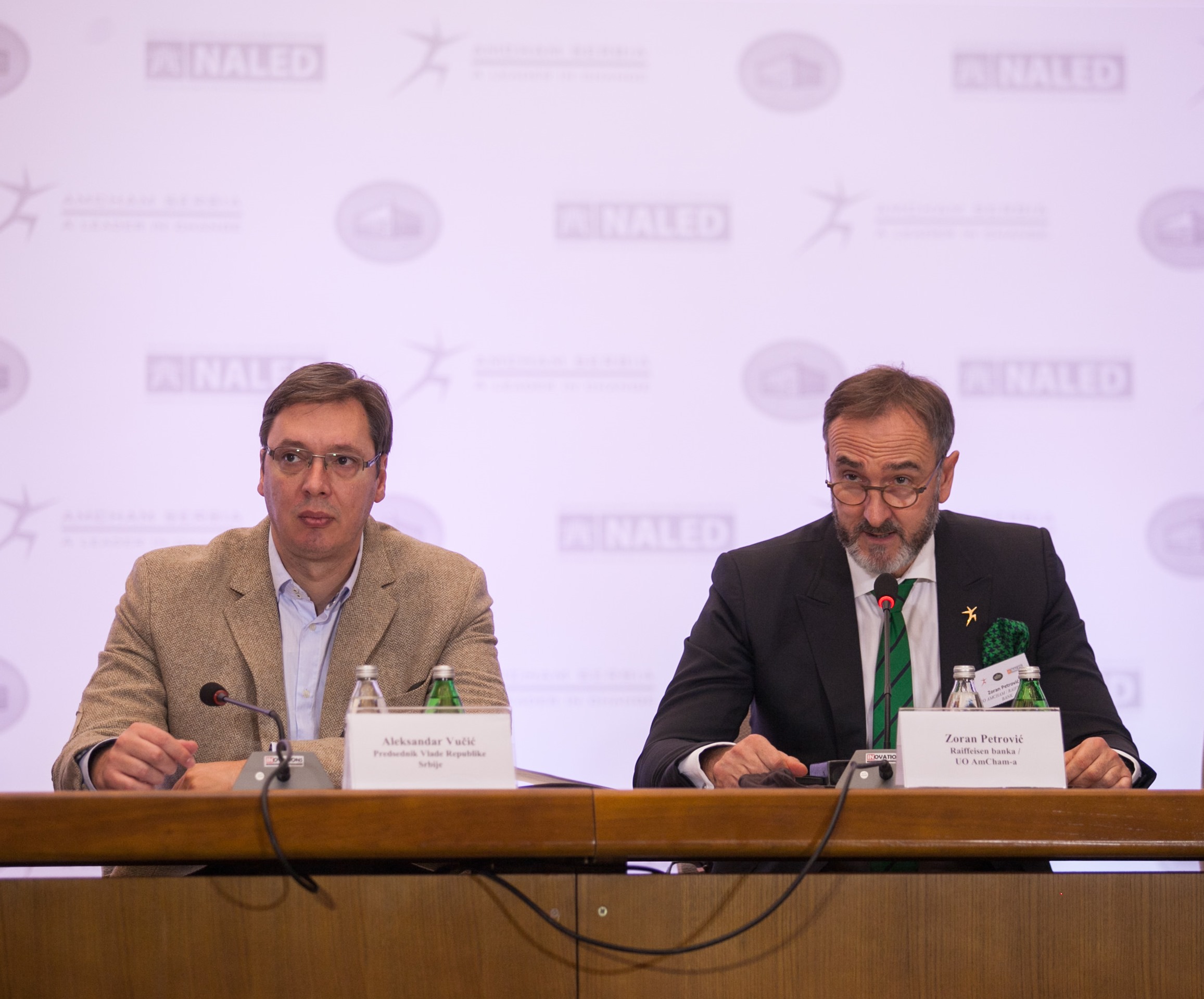
The conference was opened by Zoran Petrović, President of the AmCham and Aleksandar Ružević, Board member of NALED before more than 200 guests – business leaders, representatives of national authorities and institutions, local governments and international organizations. It was emphasized that the precondition for further progress in reducing the volume of grey zone is cooperation of inspection bodies, the police, prosecutors and courts. Petrović and Ružević stressed that the members of AmCham and NALED are ready and prepared to provide technical assistance to the Government of Serbia in the implementation of the National Program to combat the gray economy.
A panel discussion on measures for more efficient coordination of inspection and prosecution of illegal businesses, highlighted the need for full implementation of the Law on Inspection Control, as well as the so-called harmonization of sectoral laws enforced by inspection with this regulation. One of the proposed measures for more efficiency is the development of the capacity of inspection, along with the introduction of better criteria for assessing the effect of inspectors and measures to encourage high quality work.
In the area of sanctioning illegal behavior, the need to consider tightening the penal policy, improve the training of inspectors for the submission of applications, as well as implementing the law provided for the specialization of prosecutors and courts for actions in the field of gray economy was highlighted.
“The available data show that there is much room for improvement in the process of discovering criminal offenses in the informal economy and prosecution in order to eliminate failures in which a number of appeals are either rejected or returned for additional investigation. It is therefore important to establish more regular inspections and coordination with prosecution to analyze the outcome of criminal charges, formulate clear guidelines for the operation of competent inspection and other bodies in detecting criminal acts to ensure their cooperation with public prosecutors” said Ivan Miletić, Chairman of the AmCham Combating Grey Economy Committee.
The second panel of the conference discussed measures to encourage businesses to operate within legal channels. The reform of non-tax and para-fiscal levies was pointed out as a key measure to be implemented next year.
“The Serbian Government and the Ministry of Finance should direct reform toward the formation of a public electronic register, where all the taxes and fees for doing business would be indexed. The register should become the sole basis for tax collection. NALED has created a good starting point by developing the first registry featuring 384 non-tax charges, 247 of which are para-fiscal,” said Goran Kovačević, Chairman of the Board of NALED.
Bearing in mind that four out of five entrepreneurs do not survive the initial period of starting business, it was concluded that the exemption from taxes and contributions and the reduction of non-tax charges in the first year of operation could be proven as an important stimulus for leveraging entrepreneurship. It was also put forward for Government’s consideration to introduce a permanent lowering of taxes and contributions on the minimum wage, as well as to facilitate the recruitment of seasonal workers, which is now fully in the grey zone. It was underlined that it is necessary to create an environment in which the economy will be fairly inspected and that the key measure for all of the inspections is to apply risk analysis assessment.
Two sets of recommendations were presented to decision-makers on the panel on priority measures to combat the grey economy with the participation of Minister of Construction, Transport and Infrastructure Zorana Mihajlović, Minister of State Administration and Local Self Government Ana Brnabić and Minister of Justice Nela Kuburović.
Minister Brnabić announced the implementation of educational campaigns encouraging awareness of citizens and businesses about the harmfulness of the informal economy. She pointed out that this is the right moment to implement such measures because the state has strengthened inspection and is working intensively on electronic services which represent a barrier to corruption and bureaucracy.
Prime Minister Aleksandar Vučić concluded the conference by pointing out that the reduction of the grey zone is one of the priorities of the Government and announced accordingly that 2017 and 2018 will be years of combating the grey economy.
“One year since the adoption of the National Program to combat the gray economy we managed to achieve significant results, but we need to continue reforms. Therefore, the Government and our partners from AmCham and NALED propose a series of measures that include reform of para-fiscal levies and the introduction of an integrated system of risk analysis” the Prime Minister said.


